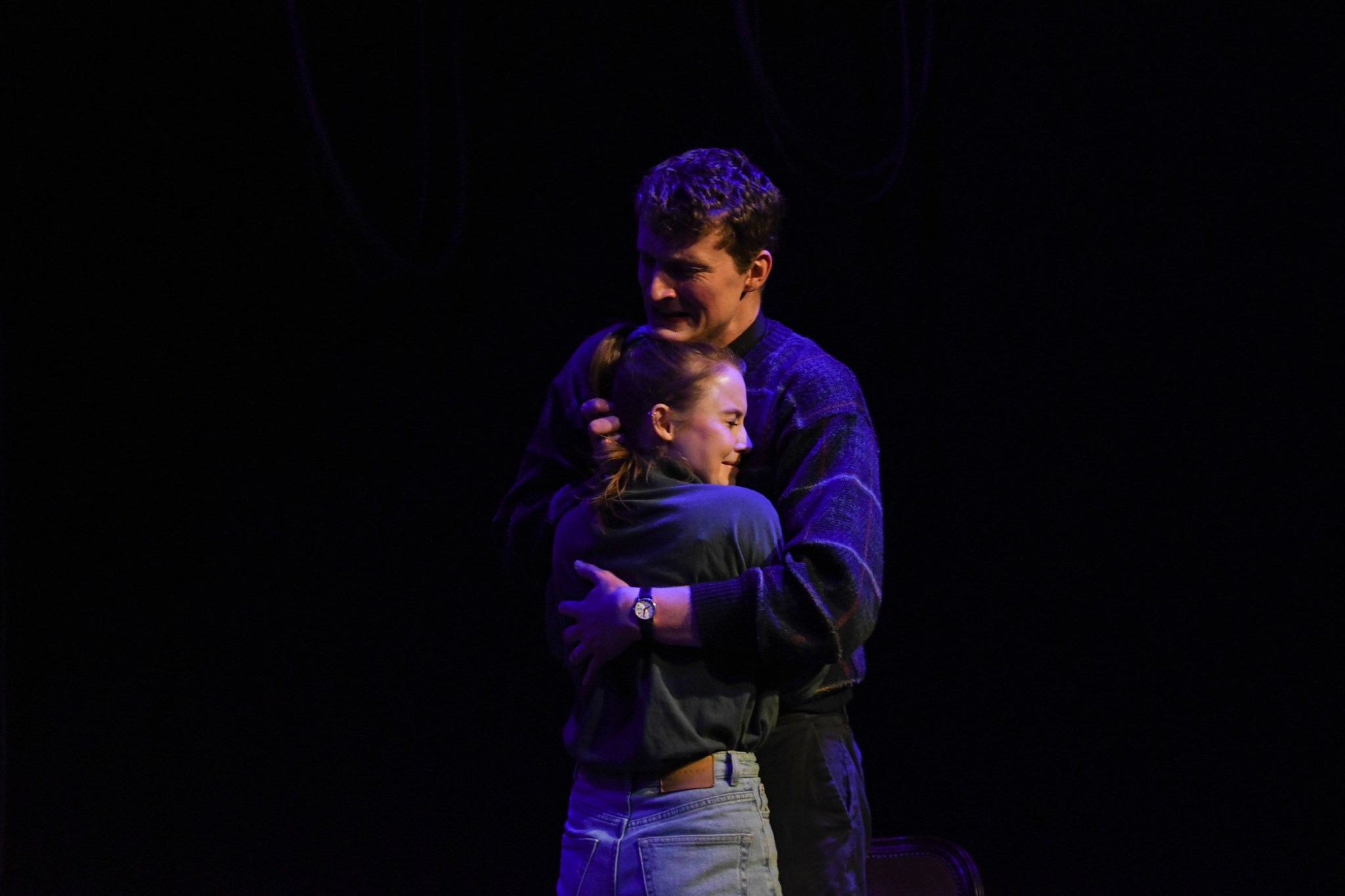An intense personal tragedy, Random Acts of Malice was made successful by its versatile actors who balanced a heavy, difficult script with their own compelling characterisation.
“Four people in a room with a gun” is how writer Alan Fraser neatly summed up the naturalistic play, however, the main focus is on the unsettling relationship between the unhinged, American, braggart Hal (Ejiro Imiruaye) and the unthreatening, non-sexual and emotionally unintelligent Reverend James (Alec Sims). The third act of the play is focused wholly on these two characters, who are both well-written and well-acted. Imiruaye nails Hal’s long, wordy monologues with intense eye contact and is thoroughly hittable. Hal is a pathetic character whose arguments against a God is portrayed as basically naïve in the first half, but then more sympathetically in the second. Contrastingly, Sims is amazing as the Reverend – a complete transformation from a doting father with earnest beliefs to a broken, rudderless man stripped of any dignity. I really enjoyed Sims’ physicality; his over-gesticulation reminded me instantly of my own family priest trying to be persuasive and Sims’ grin and drooping eyes highlighted his innocence and fatal trusting nature.
My first reaction to seeing the young cast play mostly middle-aged characters was disbelief, however, I was impressed by how convincing they each were as a vanilla, middle-class and increasingly senile family unit. Without a doubt, my favourite moments were seeing the Petrie family together as a three bickering over their stranded guest, as it was realistic and avoided stereotypes. Each of these characters could have easily descended into caricature; the obtuse Vicar and mild-mannered wife were instead a clearly loving couple with a shared view of life; essentially good people.

The standout moment of the whole play for me was in the second half when the Petrie daughter Larissa (Molly Anderson), demonstrated her great maturity and understanding of people when she attempted to control the erratic and ill-tempered Hal. I was fascinated by the dynamic of the daughter using intelligence and science, based on her psychiatric hospital experience, in comparison to her father the Reverend repeating meaningless platitudes. Larissa at first appeared to be an adult stuck in her adolescent years, clad in combative doc martins and blue denim, but it became clear that she was the third voice in the play – understanding the power of religion’s love and faith but clear that we live in a lawless, chaotic society. I would, however, have liked to have seen Larissa’s character expanded, as she encapsulated the voice of the new generation in contrast to the 20th century binary choices of atheism and piety.
The Petrie Wife Hannah (Chloe Arrowsmith) was a fun, pragmatic breath of fresh air and Arrowsmith certainly shone in her role. However, I would have liked for Hannah’s voice again to be built on as I suspected that she was much more free-spirited and less dogmatic than her husband. The dynamic between the male characters was electric but the family’s different reactions to Hal was the greater source of drama – I was so nervous when Hal would leave and the three would loudly squabble. With a tighter second half, the momentum slowed down after the second act of malice, and with a more balanced nature this play could be the example of how powerful a small-casted, low-production performance can be. Each actor did justice to their parts, but still the fictional victims deserved more development.
Image Credit: Abby Swain

